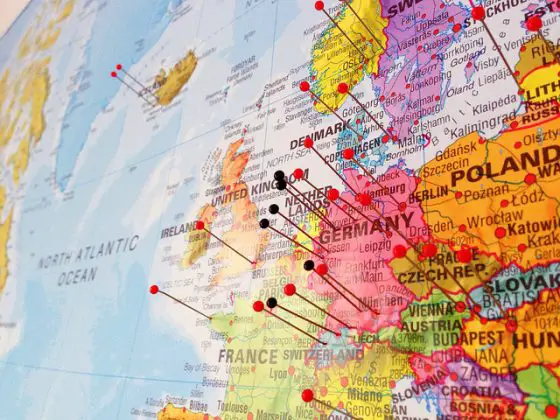In Favor :-
- Tourism puts pressure on natural resources of the place like water, food supply, beaches and coral reeves.
- Due to increased effort on providing good facilities to tourists, it has increased a pressure on many other resources such as minerals, fossil fuels, soils, forests, and wildlife.
- Mass tourism is linked to increased levels of pollution through traffic emissions, littering and increased sewage production. Transportation by air, rail and road have considerably increased due to increase in tourism over the last decade which has also increased the pollution level.
- Tourism also increases the content of solid waste in the environment which destroys the natural beauty of the place as well as causes disturbances in the natural habitat. Solid waste has majorly affected the beach areas and destroyed marine life.
- Mass tourism can only be achieved with simultaneous infrastructure development, the cost of which falls on the government which has to step out of revenue sources by taking loans from foreign nations, etc. Often, it is not a one-time investment and needs continuous monitoring and reparations.
- The jobs created by mass tourism often belong to the informal sector, like those of guides and roadside vendors. These are often ill-paid and seasonal in nature.
- With a boom in privatization, the informal and low-scale jobs in tourist places are often displaced by huge hotel and restaurant chains which bag the majority financial gains and also deal the utmost environmental harms.
- Furthermore, the money generated by tourism need not be used for the betterment of the community. It often comes at the cost of exploitation of one place and development of the other.
- Mass tourism can lead to displacement of the locals due to intensive industrialization and pollution.
- The interaction between foreigners and locals, however romantic and beneficial it may seem, need not always have positive impacts. It can lead to increase in prostitution, crowding, congestion, drugs and alcohol problems and increased crime levels.
Against :-
- Money collected by the government from tourists could be used in various government schemes and help in increasing the economy of the country.
- Tourism can help in earning good revenue which in turn can be used in the conversion of habitat and in the development of various parks, zoo, etc.
- Tourism also provides employment to thousands of people both directly within the tourism industry and indirectly through governmental policies, retail, and transportation. When these people spend on goods and services, even more, jobs are created.
- The tourism industry is also a direct benefit and opportunity to medium, small and micro enterprises and the entrepreneurs.
- Tourism, and particularly nature and ecotourism, has also helped in the preservation and conservation of wildlife and natural resources through strict regulatory measures. Several national parks and wildlife sanctuaries harvest all their funds entirely from ticket sales.
- Even more, tourism also encourages people and government to protect and conserve traditional customs, handicrafts, and festivals.
- Educational and medical tourism provide an initiative to the respective industries to bloom further and turn entire cities into industrial hubs.
- Tourism has also increased awareness among the people and has brought people closer to nature and environment.
Steps taken by Indian Government :-
- Swachh Bharat Mission is one of the biggest cleanliness drives which aims to clean streets, roads, and improve the infrastructure which as a result will attract more tourists in India.
- Clean Ganga Mission aims at cleaning River Ganga and its tributaries and to maintain the water quality of the sacred river and its development as it already attracts thousands of tourists every year.
- National Air Quality Index Project focuses on bringing down the soaring pollution levels in the country. This will also help in bringing down the pollution level and also help in spreading awareness about the air quality.
- Water conservation project has been undertaken by the Modi Government which aims to conserve water across the country and also includes checking and construction of dams. Along with this farmer across the country are also advised to adopt modern ways of water conservation.
Conclusion :-
- Proper regulatory measures should be taken which ensures the safety of the ecosystem as well as help in the development of natural flora and fauna.
- Strict laws should be made which limits the number of visitors to a specific area, which would reduce the negative impacts on the resources of the place.
- Waste management and pollution prevention techniques should be implemented which would minimize the impact of waste and pollution on the environment.
Afterwords: What are your thoughts on this topic? Let us know your opinions in the comment section below. Subscribe to our blog to read answers to trending gd topics.
Photo Credit : poolie under CC 2.0
Copyright @ Group Discussion Ideas.

